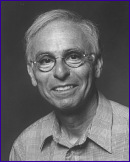ARCHIVED BLOGS
-------------------------------------------------------------------------------------------------------------------------------------
EINSTEIN HIS LIFE AND TIMES
I enjoy a biography of people who have come from humble means and make a great contribution to the world. I just finished reading "His Life and Universe" of Albert Einstein." written by Walter Isaacson.
At first I was hesitant to start the 551 page book of revelations because to tell you the truth I am not into Physics and I usually prefer 250- 300 page biographies.
I was pleasantly surprised that I did not need a PHD to enjoy the read. Albert came from humble means; his father Hermann was an inept business man who was most fortunate to marry Pauline Koch whose father was a very wealthy grain dealer and purveyor to the royal family.
He was slow in learning how to talk. He only began using words after the age of two. The family even named him the "dopey one", He had such difficulty with language that the family feared he would never be able to learn. His rebellious nature and his lack of focusing at school had his teachers predict that he would not amount to much. To make matters worse he had a mild form of Echolalia, causing him to repeat phrases to himself two or three times, especially if they amused him. He generally preferred to think in pictures. He told his parents that: "I rarely think in words at all."
He was blessed by being born into an independent-minded intelligent Jewish family that valued education; being an outsider and wanderer in Europe provided a stimulus to his quest for knowledge. He consequently was encouraged to probe more deeply into problems than most other children. Albert was always curious wanting to know why. One day when he was sick in bed his father brought him a compass. This created a sense of wonderment and made a lasting impression on his desire to discover the hidden reason for the magnetic field created by gravity.
Albertís math tutors soon learned that their pupil surpassed their ability to pass on their knowledge. He was often asked to leave the class by intimidated high school teachers who admonished him for sitting at the back of the class and smiling . Finally the administration asked him to leave school at Christmas break at the age of 17.
The high school dropout was encouraged to take the entrance exam that he aced and was excepted at the Zurich Polytrechnic. The rumor that he had failed math was false; before he was 15 he had mastered differential and integral calculus.
Music continued to beguile Einstein. It was not so much an escape as it was a connection to the harmony underlying the universe and to the creative genius of the great composers. He was simply awed, both with the violin and physics, by the beauty of the similar harmonies.
Albert Einstein was by all accounts a genius, Nobel Prize winner and yet a humble man. When offered the presidency of Israel by Embassador Abba Eban he declined explaining that he was not a role model for others to follow. At the black-tie event at the White House Albert came dressed in his tuxedo without his socks.
Einsteinís constant quest for knowledge and the desire to think outside of the rule of law and conform to the norm was his raison díetre of his brilliance.
When he died at the age of 76 his body was cremated but his brain was preserved by the coroner, Thomas Harvey. Interesting, that Einsteinís brain was not an anomaly.
The explanation that Einstein himself often gave for his mental capacities was his curiosity. As he put it towards the end of his life, " I have no special talents, I am only passionately curious." Perhaps the most important aspect of his personality was his willingness to be a non conformist.
President Eisenhower declared that : "No other man contributed so much to the vast expansion of the 20th century knowledge. Yet no other man was more modest in the possession of the power that is knowledge, more sure that power without wisdom is deadly."
Einstein summed his philosophy: "Life is like unto riding a bicycle. To keep your balance you have to keep moving."
Albert Einsteinís biography, "His life and Universe" is well worth the time to read and learn.
Len Lesser

